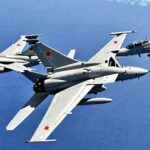Understanding the Israel-Hezbollah-Hamas-Iran Conflict in a Global Context
This article examines the Israel-Hezbollah conflict in the context of a larger geopolitical struggle labeled the post-post-Cold War, emphasizing the conflict between democracies seeking collaboration versus authoritarian regimes that resist it. The implications of Israel’s actions resonate globally, affecting relations with nations like Iran, Russia, and China amid ongoing tensions and conflicts in Ukraine and the Middle East.
To comprehend the implications of Israel’s severe strike against Hezbollah in the broader landscape of geopolitical relations, one must consider the ongoing dynamics that transcend the Cold War. Following the Hamas assault on Israel on October 7, I contend that we have witnessed a transition from a post-Cold War era to what might be termed the post-post-Cold War period. This current phase represents a contention between two distinct coalitions: the “coalition of inclusion,” comprising progressive nations seeking integration and collaboration in addressing global challenges such as climate change, led by the United States; versus the “coalition of resistance,” which includes authoritarian regimes such as Russia, Iran, and North Korea that leverage their opposition to the inclusive model as justification for their oppressive governance. Crucially, China remains ambivalent, caught between these two factions due to its economic dependence on the coalition of inclusion, while also sharing authoritarian tendencies with the coalition of resistance. The conflicts in Ukraine, Gaza, and Lebanon must be viewed through the lens of this global divide. Ukraine’s aspiration to integrate with Europe by distancing itself from Russian dominance mirrors Israel’s and Saudi Arabia’s efforts to broaden the coalition of inclusion in the Middle East by normalizing relations. Russia’s attempts to hinder Ukraine’s Western integration, alongside Iran, Hamas, and Hezbollah’s efforts to prevent Israel’s rapprochement with Saudi Arabia, aim to maintain their regional influence. The successful integration of Ukraine into the European Union would significantly bolster the inclusive European vision and further exacerbate Russia’s isolation, while Israel’s potential normalization with Saudi Arabia would enhance the coalition of inclusion within the region and markedly isolate Iran and its proxies, such as Hezbollah in Lebanon, the Houthis in Yemen, and the Shiite militias in Iraq, which have contributed to the destabilization of their respective states.
The article explores the evolving nature of global geopolitical conflicts in the post-Cold War era, particularly highlighting the tensions between democratic nations advocating for inclusion and authoritarian regimes that resist such movements. The focus is on the implications of Israel’s actions against Hezbollah and how these events relate to broader international struggles involving nations such as Russia, Iran, North Korea, and China. It contextualizes current conflicts within a framework of competition between inclusive and resistant coalitions, emphasizing the potential impacts on regional stability and international relations.
In summary, the ongoing conflicts involving Hezbollah, Hamas, and Iran are not merely regional disputes but are integral to a larger geopolitical struggle characterized by opposing ideologies. The outcome of these confrontations has the potential to redefine alliances and influence the balance of power long term. As democratic nations strive for greater inclusion and cooperative frameworks, authoritarian regimes will undoubtedly continue to resist these shifts, striving to maintain their influence and suppress dissent.
Original Source: www.nytimes.com








Post Comment